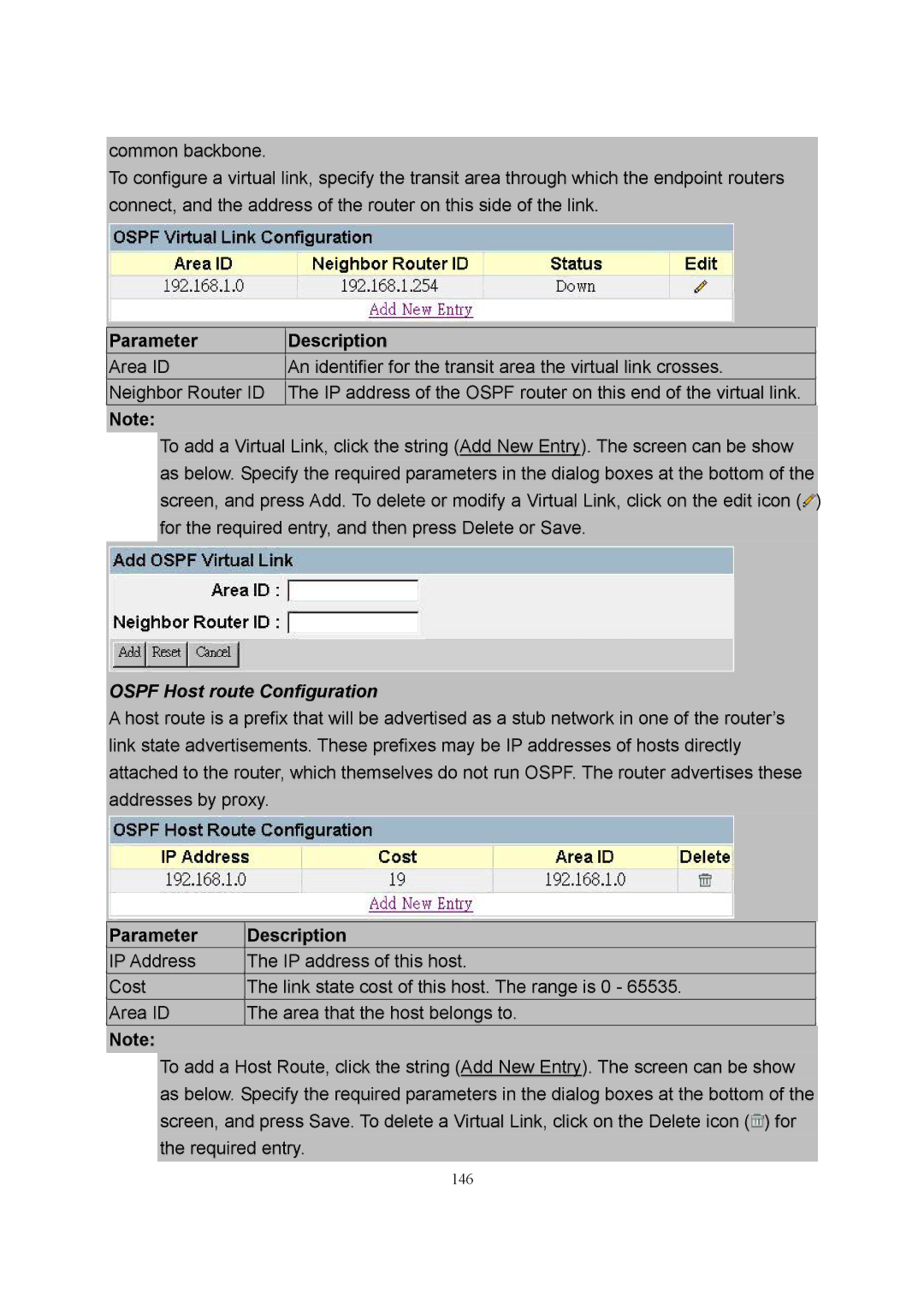
common backbone.
To configure a virtual link, specify the transit area through which the endpoint routers connect, and the address of the router on this side of the link.
Parameter | Description |
Area ID | An identifier for the transit area the virtual link crosses. |
Neighbor Router ID | The IP address of the OSPF router on this end of the virtual link. |
Note: |
|
To add a Virtual Link, click the string (Add New Entry). The screen can be show as below. Specify the required parameters in the dialog boxes at the bottom of the screen, and press Add. To delete or modify a Virtual Link, click on the edit icon (![]()
![]() ) for the required entry, and then press Delete or Save.
) for the required entry, and then press Delete or Save.
OSPF Host route Configuration
A host route is a prefix that will be advertised as a stub network in one of the router’s link state advertisements. These prefixes may be IP addresses of hosts directly attached to the router, which themselves do not run OSPF. The router advertises these addresses by proxy.
| Parameter | Description |
|
|
| ||
| IP Address | The IP address of this host. |
|
| Cost | The link state cost of this host. The range is 0 - 65535. |
|
|
|
|
|
| Area ID | The area that the host belongs to. |
|
| Note: |
|
|
To add a Host Route, click the string (Add New Entry). The screen can be show as below. Specify the required parameters in the dialog boxes at the bottom of the screen, and press Save. To delete a Virtual Link, click on the Delete icon (![]() ) for the required entry.
) for the required entry.
